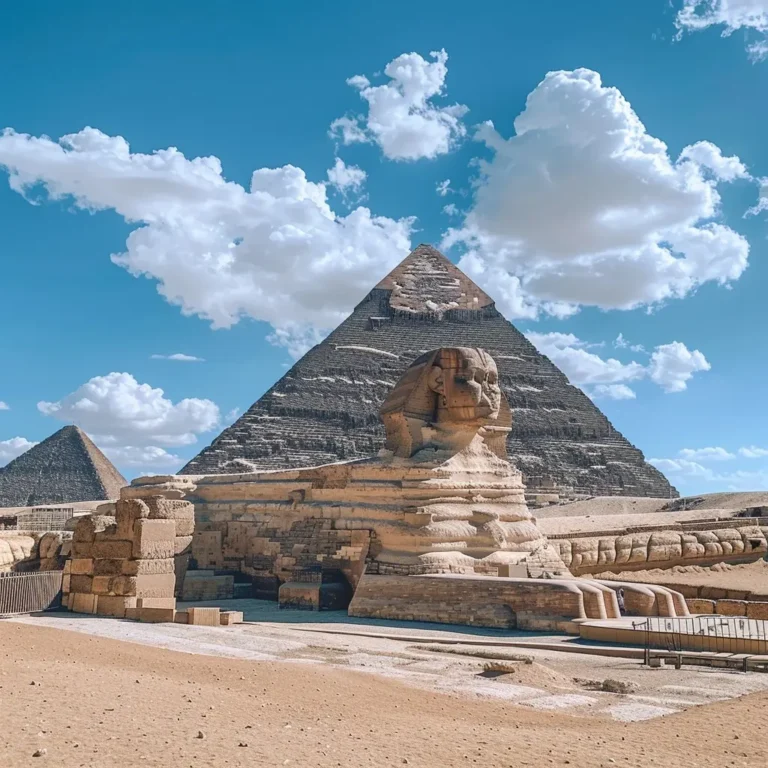Stay sharp and foster your brain development with our Trivia game generator or Fun Facts game for you mental exercises and mental sharpness!
History facts that often slip through the cracks of mainstream narratives. From the baffling “Great Emu War” to the unexpected origins of everyday items like the safety pin, history is filled with curious and surprising stories.
Dive into these 100 uncommon historical facts from the 1800s and 1900s, and uncover the quirky, astonishing, and sometimes bizarre events that shaped our world. Whether it’s a forgotten scandal, an unusual invention, or an odd historical event, these tidbits offer a fresh perspective on the past.
Get ready to be amazed and perhaps even question what you thought you knew about history!
Uncommon history facts
1800s Historical facts
- The Great Emu War (1932)
- Australian soldiers were employed to cull emus damaging crops in Western Australia. The operation was unsuccessful, highlighting the resilience of the emus.
- The Davy Crockett Myth
- The tall tales about Davy Crockett, including his role in the Alamo, were exaggerated or fictionalized to create a larger-than-life legend.
- The Invention of the Anesthesia Machine
- Dr. William Morton demonstrated the use of ether as an anesthetic in 1846, revolutionizing surgery.
- The First Photograph of a Human
- In 1838, Louis Daguerre captured the first known photograph of a person, which unintentionally included a man getting his boots shined.
- The “Murder Act” of 1752
- This act, before the 1800s, restricted methods of execution in England and introduced hanging as the primary means of execution.
- The Mysterious Disappearance of the USS Indianapolis (1945)
- After delivering parts for the atomic bomb, the USS Indianapolis was torpedoed and sank, leading to a disaster where over 800 men perished.
- The Birth of the Pony Express (1860)
- The Pony Express was a fast mail service across the American West, operating for just 18 months but becoming an iconic symbol of the American frontier.
- The Suez Canal Opens (1869)
- The Suez Canal opened, creating a crucial maritime route between the Mediterranean Sea and the Red Sea, significantly impacting global trade.
- The “Madwoman in the Attic” Syndrome
- In the 1800s, women who were considered mentally ill were often institutionalized and referred to as “madwomen,” reflecting societal attitudes toward women’s mental health.
- The Discovery of the Dinosaur Fossils (1822)
- Mary Ann Mantell discovered the first dinosaur fossil, the Iguanodon, in 1822, marking the beginning of paleontology as a scientific field.
- The Rise of “Suffrage Movements”
- In the late 1800s, suffrage movements gained momentum, advocating for women’s right to vote, with significant milestones achieved in various countries.
- The Development of the Morse Code (1830s)
- Samuel Morse and Alfred Vail developed Morse code in the 1830s, revolutionizing long-distance communication.
- The “Great Famine” in Ireland (1845-1852)
- A devastating potato blight led to the Great Famine, causing massive death and emigration from Ireland.
- The Invention of the Typewriter (1868)
- Christopher Latham Sholes patented the first commercially successful typewriter, transforming written communication.
- The Opening of the Eiffel Tower (1889)
- The Eiffel Tower was completed and opened as the entrance arch for the 1889 Exposition Universelle (World’s Fair) in Paris.
- The Rise of Socialism and Marxism
- Karl Marx and Friedrich Engels published “The Communist Manifesto” in 1848, laying the foundation for modern socialist and communist movements.
- The Use of the Telegraph in War
- The telegraph was used extensively during the American Civil War (1861-1865) for rapid communication and intelligence gathering.
- The Discovery of Anesthesia
- The use of ether and chloroform in surgery was developed in the 19th century, greatly improving surgical procedures.
- The Invention of the Safety Pin (1849)
- Walter Hunt invented the safety pin, a simple yet crucial invention for everyday use.
- The Introduction of the Electric Streetcar (1880s)
- Electric streetcars revolutionized urban transportation, reducing reliance on horses and improving city infrastructure.
- The “War of the Bucket” (1325)
- Although not in the 1800s, this medieval war between the cities of Modena and Bologna over a stolen bucket reflects historical regional conflicts.
- The Advent of the Industrial Revolution
- The Industrial Revolution, starting in the late 18th century and continuing into the 19th century, brought about significant technological and social changes.
- The Rise of the British Empire
- The 19th century saw the British Empire expand significantly, becoming the largest empire in history and affecting global politics and economics.
- The Development of Vaccines
- Edward Jenner’s development of the smallpox vaccine in 1796 laid the groundwork for modern immunology.
- The Discovery of X-Rays (1895)
- Wilhelm Conrad Roentgen discovered X-rays, revolutionizing medical diagnostics.
- The Creation of the New York City Subway System (1904)
- The first section of the New York City subway system opened, changing urban transportation.
- The Establishment of the National Park System
- In 1872, the U.S. established Yellowstone National Park, the world’s first national park, leading to the creation of a national park system.
- The Emergence of the Labor Movement
- The late 19th century saw the rise of labor unions and movements advocating for workers’ rights and better working conditions.
- The Invention of the Electric Fan (1882)
- The electric fan was invented, providing a new way to cool indoor spaces.
- The Construction of the Panama Canal (1914)
- Although completed in the early 20th century, the construction of the Panama Canal began in the 19th century and was a monumental engineering feat.
- The Rise of Gothic Revival Architecture
- The Gothic Revival movement influenced architecture in the 19th century, leading to the construction of many iconic buildings.
- The Creation of the International Red Cross (1863)
- The International Red Cross was established to provide humanitarian aid during conflicts.
- The Introduction of the First Commercial Car (1886)
- Karl Benz built the first practical automobile, which led to the development of the modern car industry.
- The Spread of the Temperance Movement
- The 19th century saw the rise of the temperance movement, advocating for the reduction or prohibition of alcohol consumption.
- The Development of Synthetic Dyes (1856)
- William Henry Perkin accidentally discovered the first synthetic dye, leading to advancements in the textile industry.
- The First Successful Heart Surgery (1893)
- Dr. Daniel Hale Williams performed the first successful open-heart surgery, marking a significant milestone in medical history.
- The Opening of the London Underground (1863)
- The London Underground, the world’s first underground railway, began operation, transforming urban transit.
- The Invention of the Telephone (1876)
- Alexander Graham Bell invented the telephone, revolutionizing communication.
- The Founding of the Ford Motor Company (1903)
- Henry Ford founded the Ford Motor Company, leading to the mass production of automobiles.
- The Invention of the Vacuum Cleaner (1901)
- Hubert Cecil Booth invented the first motorized vacuum cleaner, changing household cleaning practices.
- The Formation of the League of Nations (1920)
- Although it was formed after World War I, the League of Nations was an early attempt at global diplomacy and conflict resolution.
- The Discovery of the Neanderthal (1856)
- Fossils of the Neanderthal were discovered in Germany, providing insights into human evolution.
- The Emergence of Modern Feminism
- The 19th century saw the rise of the feminist movement, advocating for women’s rights and gender equality.
- The Establishment of the Nobel Prizes (1901)
- The Nobel Prizes were established by Alfred Nobel to recognize outstanding achievements in various fields.
- The Invention of the Airplane (1903)
- The Wright brothers made the first successful powered flight, marking the beginning of modern aviation.
- The Creation of the World’s Fair (1851)
- The Great Exhibition of 1851 in London was the first World’s Fair, showcasing technological and cultural advancements.
- The Rise of the Progressive Era
- The early 20th century Progressive Era focused on social reform, including labor laws, anti-corruption measures, and women’s suffrage.
- The Development of the First Modern Computer (1936)
- Alan Turing developed the concept of a theoretical computer, laying the groundwork for modern computing.
- The Discovery of the Electron (1897)
- J.J. Thomson discovered the electron, a fundamental particle in atomic theory.
- The Emergence of Existentialism
- The 19th and early 20th centuries saw the rise of existentialist philosophy, emphasizing individual freedom and responsibility.
1900s History facts
- The “Soviet Space Race”
- The Soviet Union’s early space achievements, including launching the first artificial satellite, Sputnik, in 1957, marked the beginning of the space race.
- The Invention of the Internet (1960s)
- The precursor to the modern Internet, ARPANET, was developed in the 1960s, revolutionizing communication and information sharing.
- The Emergence of Rock ‘n’ Roll (1950s)
- Rock ‘n’ roll music emerged in the 1950s, profoundly influencing popular culture and music.
- The Development of DNA Profiling (1980s)
- DNA profiling was developed, transforming forensic science and criminal investigations.
- The Fall of the Berlin Wall (1989)
- The Berlin Wall fell, symbolizing the end of the Cold War and leading to German reunification.
- The “Titanic” Disaster (1912)
- The sinking of the RMS Titanic was a major maritime disaster, resulting in significant loss of life and changes in maritime safety regulations.
- The Creation of the United Nations (1945)
- The United Nations was established after World War II to promote international cooperation and prevent future conflicts.
- The Invention of the Polio Vaccine (1950s)
- Jonas Salk developed the first effective polio vaccine, leading to the near-eradication of the disease.
- The “Space Shuttle” Program (1981-2011)
- NASA’s Space Shuttle program facilitated reusable space travel and numerous space missions.
- The “Great Depression” (1930s)
- The Great Depression was a severe worldwide economic downturn that led to widespread unemployment and poverty.
- The Rise of Television (1950s)
- Television became a dominant medium for entertainment and information, shaping modern media.
- The Invention of the Microwave Oven (1940s)
- The microwave oven was invented, revolutionizing cooking with its quick and convenient heating method.
- The “Watergate Scandal” (1970s)
- The Watergate scandal led to President Richard Nixon’s resignation and major political reforms in the U.S.
- The Establishment of the European Union (1993)
- The Maastricht Treaty established the European Union, fostering economic and political integration in Europe.
- The Invention of the Credit Card (1950)
- The first modern credit card was introduced, transforming financial transactions and consumer behavior.
- The “Cuban Missile Crisis” (1962)
- The Cuban Missile Crisis was a major Cold War confrontation between the U.S. and the Soviet Union over Soviet ballistic missiles in Cuba.
- The Development of Artificial Intelligence (1950s-Present)
- Research into artificial intelligence began in the 1950s and has since evolved into a major field with significant technological advancements.
- The Creation of the Internet (1969)
- The ARPANET, the precursor to the Internet, was developed, laying the foundation for the digital age.
- The “Tuskegee Syphilis Study” (1932-1972)
- This unethical study observed untreated syphilis in African American men, highlighting serious ethical breaches in medical research.
- The First Successful Organ Transplant (1954)
- The first successful kidney transplant was performed, advancing the field of organ transplantation.
- The “Challenger Disaster” (1986)
- The Space Shuttle Challenger disaster was a tragic event that resulted in the loss of seven astronauts and led to a reevaluation of NASA’s safety protocols.
- The Invention of the Laser (1960)
- The laser was invented, leading to numerous applications in medicine, communication, and technology.
- The Discovery of the Higgs Boson (2012)
- The discovery of the Higgs boson particle confirmed a key aspect of the Standard Model of particle physics.
- The Rise of Globalization
- The late 20th and early 21st centuries saw increased globalization, with greater economic, cultural, and political interconnectedness.
- The “Dot Com Bubble” (1990s)
- The dot com bubble was a period of excessive speculation in Internet-based companies, leading to a market crash in 2000.
- The Development of Quantum Computing
- Research into quantum computing began in the 20th century, promising to revolutionize computing with quantum mechanics principles.
- The Establishment of NASA (1958)
- The National Aeronautics and Space Administration (NASA) was established to oversee U.S. space exploration and research.
- The Discovery of the Dead Sea Scrolls (1947)
- The Dead Sea Scrolls were discovered, providing valuable insights into early Jewish texts and history.
- The Rise of Digital Photography
- The transition from film to digital photography revolutionized how images are captured, processed, and shared.
- The “Bay of Pigs Invasion” (1961)
- The failed U.S. attempt to overthrow Fidel Castro in Cuba highlighted Cold War tensions and resulted in a diplomatic crisis.
- The Introduction of the Personal Computer (1970s)
- The personal computer revolutionized work and leisure, becoming a staple in homes and offices.
- The Discovery of the First Exoplanet (1992)
- The discovery of an exoplanet orbiting a pulsar was a groundbreaking find in the search for extraterrestrial worlds.
- The Emergence of Environmental Movements
- The 20th century saw the rise of environmental movements advocating for conservation and addressing climate change.
- The Invention of the World Wide Web (1989)
- Tim Berners-Lee invented the World Wide Web, providing a user-friendly interface for accessing the Internet.
- The “Rwandan Genocide” (1994)
- The Rwandan Genocide was a tragic event in which ethnic tensions led to mass killings and international humanitarian responses.
- The Development of the Large Hadron Collider (2008)
- The Large Hadron Collider was completed, allowing physicists to explore fundamental particles and forces.
- The Rise of Social Media (2000s)
- Social media platforms like Facebook, Twitter, and Instagram transformed communication, networking, and information sharing.
- The “Vietnam War” (1955-1975)
- The Vietnam War was a significant conflict that influenced U.S. foreign policy and domestic politics.
- The Introduction of GPS Technology (1970s)
- The Global Positioning System (GPS) was developed, revolutionizing navigation and location-based services.
- The Discovery of Penicillin (1928)
- Alexander Fleming’s discovery of penicillin marked the beginning of the antibiotic era, transforming medicine.
- The Emergence of Biotechnology
- The field of biotechnology developed, with advances in genetic engineering, cloning, and molecular biology.
- The Creation of the Euro (1999)
- The Euro was introduced as a common currency for many European Union countries, promoting economic integration.
- The Rise of Hip-Hop Culture (1970s)
- Hip-hop culture emerged in the 1970s, influencing music, dance, and fashion globally.
- The Development of Renewable Energy Technologies
- Advances in renewable energy technologies, including solar and wind power, have been significant in addressing climate change.
- The “Iranian Revolution” (1979)
- The Iranian Revolution led to the establishment of the Islamic Republic of Iran, changing regional and global geopolitics.
- The Invention of the Electric Car (2000s)
- Modern electric cars, like those produced by Tesla, have become a significant innovation in transportation.
- The Discovery of the Human Genome (2003)
- The Human Genome Project completed mapping the human genome, advancing genetics and personalized medicine.
- The Rise of Streaming Services
- Streaming services like Netflix and Spotify have transformed media consumption, providing on-demand access to content.
- The “Brexit” Referendum (2016)
- The Brexit referendum led to the United Kingdom’s decision to leave the European Union, impacting European and global politics.
- The Development of CRISPR Technology (2010s)
- CRISPR-Cas9 technology revolutionized gene editing, offering new possibilities in genetics and medicine.






